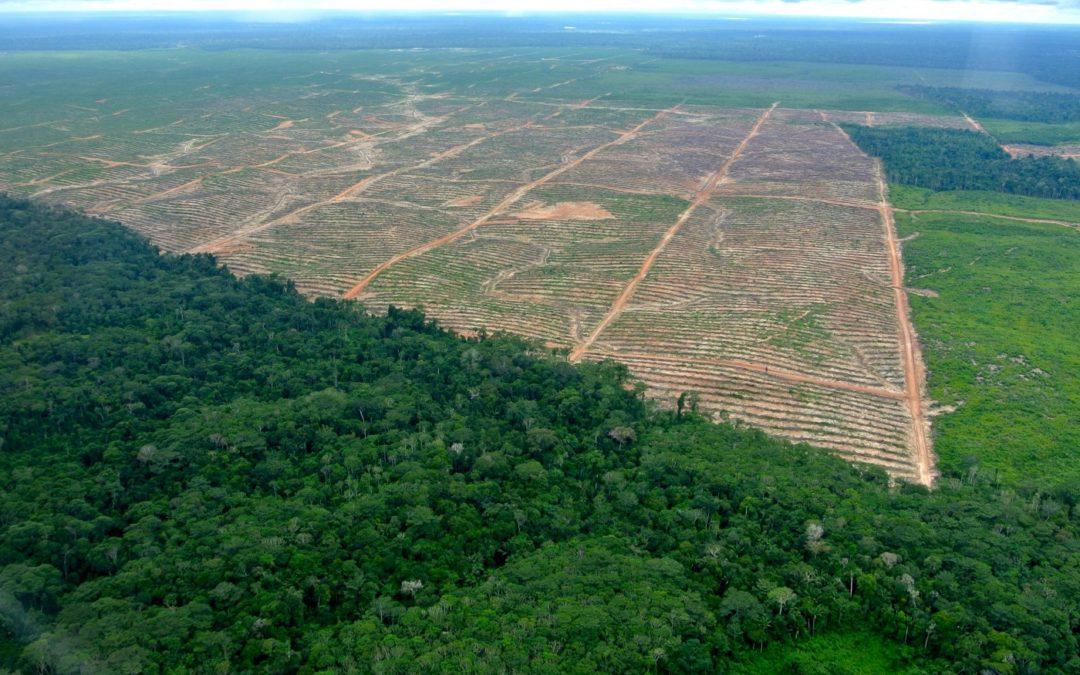Post-COVID-19, we need a food systems approach to achieve zero-deforestation diets

The COVID-19 pandemic brings home a point that Jane Goodall recently echoed in a stern warning to the world. In an interview, the celebrated primatologist said humanity will end if we do not change our ways, specifically how and what we eat, which has caused undue damage to forests.
Primary forest areas in Ucayali, Peru, deforested due to palm oil production. Photo by: Rettet den Regenwald e.V. (Rainforest Rescue) / CC BY-NC-ND 2.0
By Augusto Castro-Nuñez and Ma. Eliza J. Villarino
What Goodall noted — the close connection between diets and forests — is not new. Over the years, the clamor for a shift to sustainable diets has grown, catapulted as a global objective under Sustainable Development Goal 12, on responsible production and consumption. Finding an effective approach toward that end has remained elusive, though.
The challenge, in part, lies in the perspective that government and donor policies seeking to promote zero deforestation and sustainable consumption have adopted. Take the example of the European policy on forest-risk agricultural commodities and the growing number of voluntary corporate commitments to green supply chains. They focus on either tempering the appetite of countries to where these agricultural commodities are exported or to encouraging small-scale farmers to shift from slash-and-burn to sustainable agriculture. The literature on sustainable production and consumption unsurprisingly reflects this trend.
It is true that the production of globally traded agricultural commodities has caused significant deforestation. It is, however, also true that it accounts for a small portion of overall production. Agricultural production for the domestic market makes up for the rest, yet very few have explored how to change food consumption toward a more sustainable pattern in-country.
Understanding the links between domestic food consumption and land use patterns, plus developing appropriate policies and incentives, would be crucial to a successful movement toward sustainable agricultural production and diets. This is particularly important in countries plagued by deforestation and forest degradation, such as those in Latin America.
